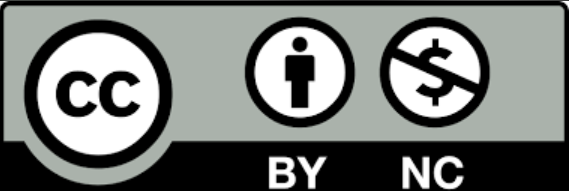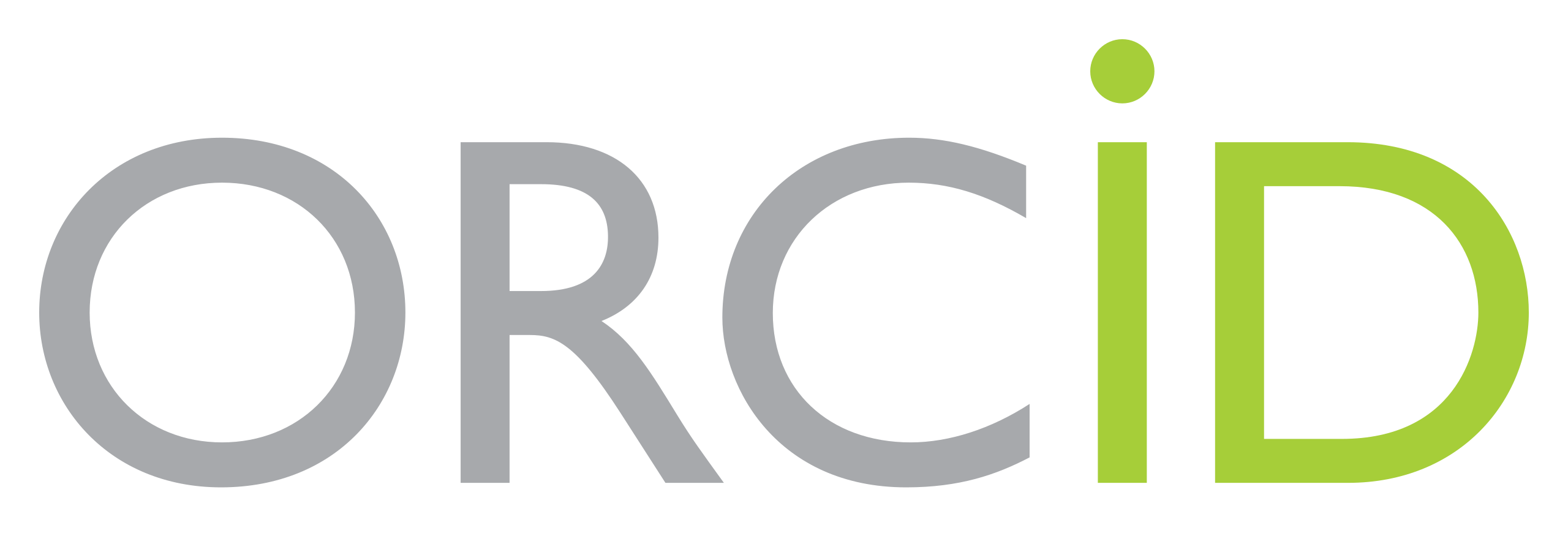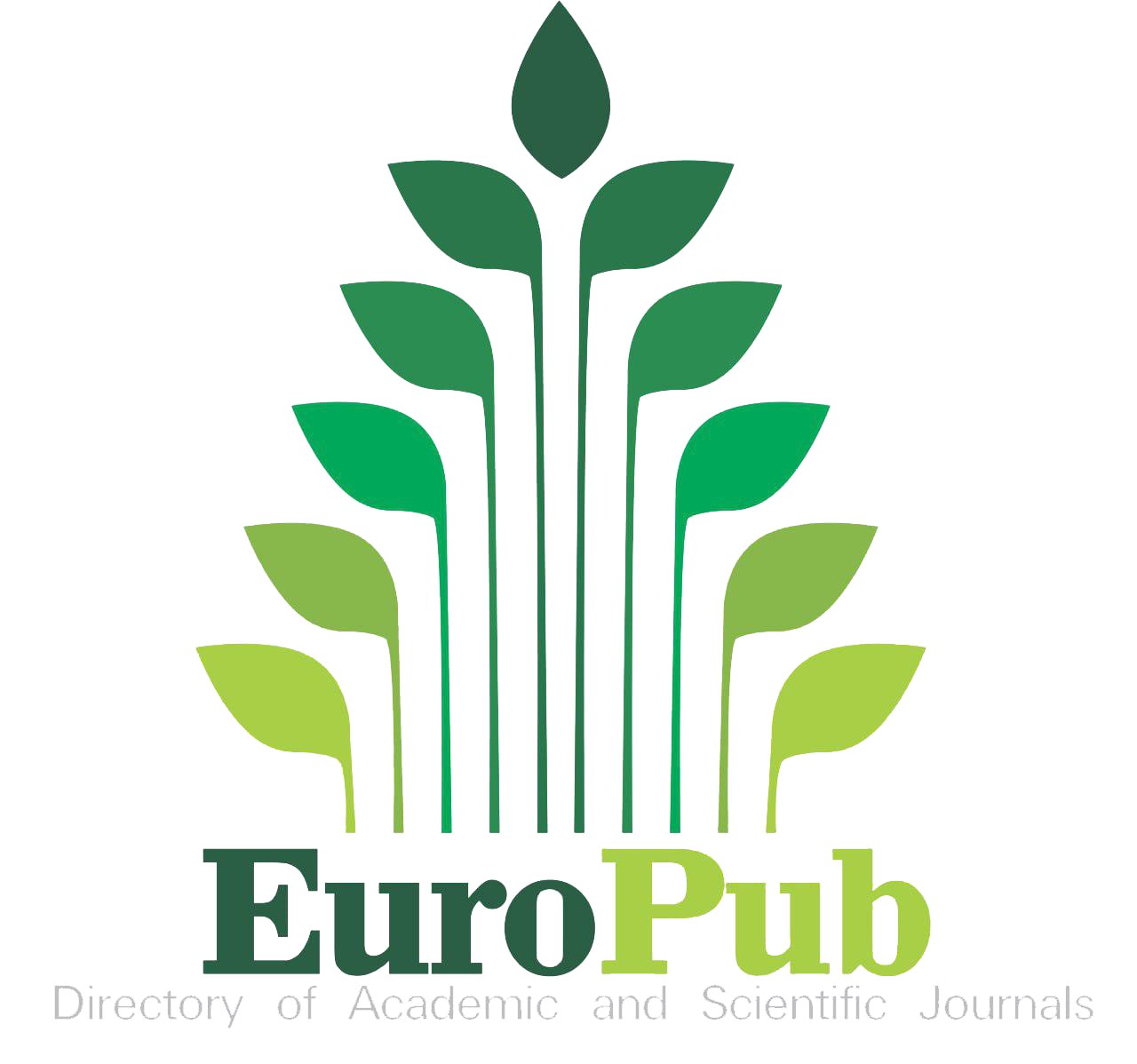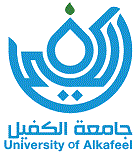Editorial Policies
Ma’aen Journal for Medical Sciences (MAJMS) is a peer-reviewed scientific journal that is published quarterly. This journal aims for continuous dissemination of updates in relation to various aspects of medical science and its related fields in the form of original articles, case reports, and reviews. All submitted manuscripts are subjected to double-blind peer reviews and editorial review processes before being granted acceptance.
MAJMS adheres to the ethical standards and guidelines set forth by the Committee on Publication Ethics (COPE), the International Committee of Medical Journal Editors (ICMJE) Recommendations for Conducting, Editing, Reporting, and Publication of Scholarly Work in Medical Journals, and the GPP3 guidelines on authorship. By submitting a manuscript to the journal, the authors imply that they have read understood, and agreed with the journal's policies and to ensure that their manuscript conforms to those policies.
Affiliations
Authors submitted their articles to MAJMS must accurately list their affiliations, which should reflect where their study was approved, supported, and/or conducted. For non-research articles, authors should list their affiliation as the place where they were based at the time of submission. Misrepresenting an affiliation is a form of misconduct, and MAJMS keeps its rights to investigate any such cases by contacting all relevant institutions. If author affiliation has been changed between the time that the research is conducted or the article is written and the time of publication, the author's current affiliation should be listed, and, the previous affiliation could acknowledged in the Acknowledgments section at the copy-editing stage.
Appeals and complaints
MAJMS policy regarding complaints, concerns, or appeals about authorship issues or the peer-review process, including those raised after publication, should be sent to the Editors-in-Chief exclusively. These claims will be investigated by asking all parties involved for information and then proposing a course of action that is consistent with the academic ethical principles outlined by the Committee on Publishing Ethics (COPE; https://publicationethics.org/). Submission process will be stopped (at any stage) during the review or publication process until the issue is resolved. If the Editors-in-Chief are involved in the complaint, he has the right to involve the Managing Editor or any member of the Editorial Board to investigate the claims and propose a course of action.
Acknowledgment
Individuals who participated in the development of a manuscript but do not qualify as an author should be acknowledged. Organizations that provide support in terms of funding and/or other resources should also be acknowledged.
Article Types
-
Original Articles
Detail original experiments and research conducted by the authors. Research on topics covered by the journal is accepted, provided it falls within the aims and scope of the journal. Original research should add to scientific knowledge on the subject, and all human and animal studies must be completed in accordance with ethical principles and institutional approvals. An unstructured Abstract of no more than 300 words should be included.
-
Review Articles
Reviews reflect the current state of the field based primarily on the literature and unlike an original research article, it won’t present new experimental results. Review articles can identify potential research areas and draw new conclusions from the existing data.
-
Clinical Case Study
Specialized authors could submit case studies about rare or newly discovered medical cases by presenting the details of real patient cases from medical or clinical practice. The cases presented are usually those that contribute significantly to the existing knowledge in the field. The study is expected to discuss the signs, symptoms, diagnosis, and treatment of a disease. These are considered primary literature and usually have no limit for word count for MAJMS.
Article Publication Charge
Articles published in MAJMS are totally free of charge (no publication fees required) for both Iraqis and foreign authors.
Authorship
MAJMS policy states that names and affiliations of all authors must be mentioned clearly and precisely since it is an important mechanism to give credit to those who have significantly contributed to the work. It also ensures transparency for those who are responsible for the integrity of the content. Criteria of authorship include that all authors listed in an article must contribute to all of the following criteria:
- Concept and design of study or acquisition of data or analysis and interpretation of data;
- Drafting the article or revising it critically for important intellectual content; and
- Final approval of the version to be published.
MAJMS advises authors to ensure the correct author group, the Corresponding Author, and the order of authors at submission. All those who have made significant contributions should be listed as co-authors. The corresponding author should ensure that all appropriate co-authors are listed that no inappropriate co-authors are included in the article and that all co-authors have seen and approved the final version of the paper and have agreed to its submission for publication.
It’s important to note that any participation solely in the acquisition of funding or the collection of data does not justify authorship and these participants are not considered as co-authors. In addition, general supervision of the research group is not sufficient for authorship. The order of naming the contributors should be based on the relative contribution of the contributor towards the study and writing the manuscript. Others who have participated in certain substantive aspects of the research project should be acknowledged or listed as contributors.
Changes of authorship by adding or deleting authors, and/or changes in Corresponding Authors, and/or changes in the sequence of authors are possible during the reviewing period. To request such a change, the Editor-in-Chief must receive the following from the corresponding author: (a) the reason for the change in the author list and (b) written confirmation (e-mail, letter) from all authors that they agree with the addition, removal or rearrangement. In the case of the addition or removal of authors, this includes confirmation from the author being added or removed. Any change in authorship and/or sequence of authors is forbidden after acceptance.
Citations
The article submitted to MAJMS must cite sufficient, relevant, up-to-date, and verified literature (peer-reviewed) to support any claims made in the article.
Authors must avoid excessive and inappropriate self-citation or ring citation (prearrangements among author groups to inappropriately cite each other’s work), as this can be considered a form of misconduct called citation manipulation. MAJMS policy strictly follows citation manipulation of the COPE guidance on citation manipulation.
Regarding review articles, you should ensure the references you cite are relevant and provide a fair and balanced overview of the current state of research or scholarly work on the topic. All references should not be unfairly biased toward a particular research group, institution, country organization, or particular journal.
All references cited in any article submitted to MAJMS must follow Vancouver styling and supplied with a DOI number (if present).
If you are unsure about whether to cite a source you should contact the journal editorial office for advice.
Conflicts of Interest/ Competing Interests
MAJMS is demanding that all authors disclose any potential competing and conflicts of interest, both financial and non-financial, that could influence the research or interpretation of the results of your article.
This includes any relationships or associations with other organizations or individuals that could be perceived by others as a conflict of interest.
A competing interest can occur where the author (or his employer, sponsor or family/friends) have a financial, commercial, legal, or professional relationship with other organizations, or with the people working with them which could influence the research or interpretation of the results.
Sponsorship of clinical trials
Authors who work for pharmaceutical companies or other organizations (in one way or another) that sponsor clinical trials must disclose this as a competing interest.
Authors should also follow the Good Publication Practice guidelines for pharmaceutical companies (GPP3), which are designed to ensure that scientific and ethical standards are maintained.
Corrections, expressions of concern, and retractions
Sometimes after an article has been published it may be necessary to make a change to its final edited version. In such cases, the corresponding author should send a signed letter to the MAJMSs Editor in Chief who will decide the magnitude of the corrections by himself or by the Managing Editor or any assigned Editor to make a decision on how significant the corrections are.
Minor corrections will be made directly to the original article. However, for major corrections, the original article will remain unchanged, and a corrected version will also be published. The original and corrected versions will be linked together. A statement explaining why the major change was made to the article will also be published. If necessary, articles will be retracted according to the COPE retraction guidelines.
However, the MAJMS team advises all authors to be precise and check all data in their articles to avoid changing content corrections or even retractions. When an author discovers a significant error or inaccuracy in the published work, it is the author’s obligation to promptly notify the journal editor and work with the editor to retract or correct the paper.
Consent for Publication
In case of details or images or any restricted materials relating to an individual person, authors include them in their manuscript. A written informed consent for the publication of these details must be obtained from that person (or his parent or legal guardian in the case of children under 18). If the person has died, consent for publication must be obtained from their next of kin.
The consent must be for publication of their details under the Creative Commons Attribution License 4.0 (such that they will be freely available on the internet). The manuscript must include a statement that written informed consent for publication was obtained.
Authors can use the consent form to obtain consent for publication, or a consent form from their own institution or region if appropriate. The consent form must state that the details/images will be freely available on the internet and may be seen by the general public. The consent form must be made available to the Editor if requested and will be treated confidentially.
Confidentiality
Submitted manuscripts are confidential documents. MAJMS team guarantees that all submitted materials are confidential and never share any document with anyone other than those involved in the processing and preparation of the manuscript for publication (editorial staff, corresponding authors, potential reviewers, actual reviewers, and editors). However, in suspected cases of misconduct, the Editor in Chief or Managing Editor of MAJMS have the right to disclose a manuscript to members of the academic journal's ethics committee and to institutions or organizations that may need it to investigate the misconduct. MAJMS will follow the appropriate COPE flowcharts whenever necessary. Once the submitted manuscript was accepted and released online, its utilization by any kind will follow CC-BY License followed by MAJMS stated below.
Copyright Policy
Author rights
For initial submission, the licensing and copyright agreement must be downloaded from Licensing and Copyright Agreement template and fill it as required and upload it as ONE file in the licensing and agreement area during the online submission process. By filling and signing the form of Licensing and Copyright Agreement the author/s agrees to grant the Maaen Journal for Medical Sciences (MAJMS) full and non-exclusive rights to the manuscript, all revisions, and the full copyright.
The Maaen Journal for Medical Sciences (MAJMS) rights include but are not limited to the following: (1) to reproduce, publish, sell, and distribute copies of the manuscript, selections of the manuscript, and translations and other derivative works based upon the manuscript, in print, audio-visual, electronic, or by any and all media now or hereafter known or devised; (2) to license reprints of the manuscript to third persons (3) to license others to create abstracts of the manuscript and to index the manuscript; (4) to license secondary publishers to reproduce the manuscript in print, microform, or any computer-readable form, including electronic on-line databases; and (5) to license the manuscript for document delivery. These non-exclusive rights run the full term of the copyright and all renewals and extensions thereof.
Regarding author rights, MAJMS uses a non-exclusive licensing agreement (the Submission Agreement). Authors will assign copyright to Ma’aen Journal for Medical Sciences (MAJMS) beside publishing and distribution rights. Please see Author Guidelines.
Who Can Submit?
Anyone may submit an original manuscript to be considered for publication in Maaen Journal for Medical Sciences provided he or she owns the copyright to the work being submitted or is authorized by the copyright owner or owners to submit the manuscript. Authors are the initial owners of the copyrights to their works before publication (an exception in the non-academic world to this might exist if the authors have, as a condition of employment, agreed to transfer copyright to their employer).
User Rights
All articles published open access will be immediately free for everyone to read, download, copy, and distribute. Permitted third-party reuse is defined by your choice of one of the following user licenses/the following user license of Creative Commons (CC BY-NC - Creative Commons Attribution: Non-Commercial License) which allows users to copy, distribute, and transmit an article, and adapt the article as long as the author is attributed and the article is not used for commercial purposes. Creative Commons Attribution-NonCommercial 4.0 International (CC BY-NC 4.0)
Data Falsification/Fabrication
When intentional steps are taken to improperly alter or create false data (inappropriately manipulate or fabricate data), it constitutes a severe type of wrongdoing aimed at deceiving others and undermining the credibility of academic records, damaging the integrity of the scholarly record with wide-reaching and long-term consequences leading to significant and lasting repercussions.
Authors, when submitting their manuscripts to the journal, are required to guarantee the precision of all data presented in their work, ensuring it accurately reflects their research. Authors are also urged to keep all original data used in their manuscripts to aid the journal in assessing their work. If the original data cannot be produced on request, acceptance of a manuscript or published paper may be declined or retracted.
Desk Rejection Policy
MAJMS Editor in Chief and Managing Editors have the right to desk rejection of submitted manuscript in one or more of the following cases:
- The topic/scope of the study is not relevant to the field of the Journal.
- There are publication ethics problems, non-adherence to international standard guidelines, and plagiarism (set at a similarity index of higher than 20 percent).
- The topic does not have a sufficient impact, nor does it sufficiently contribute new knowledge to the field.
- There are flaws in the study design.
- The objective of the study is not clearly stated.
- The study of the organization is problematic and/or certain components are missing.
- There are problems in writing or series infelicities of the style of grammar.
- The manuscript does not follow the submission guidelines of MAJMS.
Duplicate Submission/Publication
Authors are required to declare upon submission that the manuscript is not under consideration elsewhere, and as such the detection of a duplicate submission or publication is typically considered to be an intentional action. This includes articles previously published in another language.
For acceptable forms of Secondary Submissions or publications (e.g. an article translated into English), they should adhere to ICMJE guidelines. This involves securing approval from the original article's publisher and copyright holder and informing the Editor in Chief of MAJMS about the article's prior history. Additionally, readers should be clearly informed that the article is a translated rendition, with proper citation to the original piece.
Formatting Requirements
Maaen Journal for Medical Sciences has no general rules about the formatting of articles upon initial submission. There are, however, rules governing the formatting of the final submission. See Author Submission Guidelines for details. It is ultimately the responsibility of the author to produce an electronic version of the article as a high-quality PDF (Adobe's Portable Document Format) file, or a Microsoft Word, WordPerfect, or RTF file that can be converted to a PDF file.
MAJMS editors are responsible for editing the manuscript in accordance with the editing guide by the journal. As peer reviewing is complete and the manuscript is finally disposed of as accepted, typesetters will contact the corresponding author for final formatting and proof. Authors must cooperate with type setters for fast publication.
Funding
MAJMS requires that authors must declare all the sources of funding including financial support in their manuscript. Authors should describe the role of the sponsor(s), if any, in any of the steps from study design to submission of the manuscript for publication. Authors are responsible for providing any requested documents at any stage. If the original data cannot be produced on request, acceptance of a manuscript or published paper may be declined or retracted.
Guidance of Generative AI in Scientific Writing
Authors submitting their articles in MAJMS could use AI tools in the writing process or analyze and draw insights from data as part of the research process. In the case of writing assistance only Where authors use generative artificial intelligence (AI) and AI-assisted technologies in the writing process, authors should only use these technologies to improve readability and language. Applying the technology should be done with human oversight and control, and authors should carefully review and edit the result, as AI can generate non-reliable output that can be incorrect, incomplete, or biased. AI and AI-assisted technologies should not be listed as an author or co-author, or be cited as an author or in references. Authorship implies responsibilities and tasks that can only be attributed to and performed by humans. Authors should disclose in their manuscript the use of AI and AI-assisted technologies in the writing process by following the instructions below. A statement will appear in the published work. Please note that authors are ultimately responsible and accountable for the contents of the work.
But if authors use AI tools to analyze and draw insights from data as part of the research process in more than writing assisting they must disclose the use of generative AI and AI-assisted technologies by adding a statement at the end of their manuscript in the core manuscript file, before the References list. The statement should be placed in a new section entitled ‘Declaration of Generative AI and AI-assisted technologies in the writing process’ describing which part he used AI in it and reasons behind in addition to AI tool he utilized.
General Submission Rules
- Manuscripts must be written in English and have been 'spell and grammar checked'.
- All manuscripts are subject to a plagiarism check.
- The Manuscript is submitted in the editable format of a word processing file.
- Submitted articles cannot have been previously published, nor be forthcoming in an archival journal or book (print or electronic).
- By submitting material to MAJMS, the author confirms that the material is not currently under review at another journal (electronic or print) and will not be submitted elsewhere until the completion of the editorial decision process at MAJMS.
- Authors can contact the MAJMS team at any time using the official email .
Images and Figures
Images and figures should only be included in the submitted article if they are relevant and add value to the work being reported. Avoid adding purely illustrative content that does not contribute to the scholarly work. As part of the Author Licensing Agreement with MAJMS, you must obtain written permission to include material in your article that is owned and copyrighted by a third party, such as proprietary text, illustrations, tables, data, screenshots, and other supplemental material.
Misconduct
The team of MAJMS takes any type of misconduct seriously and will take all necessary action, in accordance with COPE guidelines, to protect the integrity of the scholarly record.
Below are several examples of misconduct (but are not limited to) which are forbidden in any manuscript submitted to MAJMS:
- Breaches in copyright/use of third-party material without appropriate permissions
- Citation manipulation
- Duplicate submission/publication
- Ethics dumping
- Image or data manipulation/fabrication
- Peer review manipulation
- Plagiarism exceeding 20%
- Affiliation misrepresentation
- Text-recycling/self-plagiarism
- Undisclosed competing interests
- Unethical research
Duplicate Submission
If the submitted manuscript is found to have been published elsewhere, or to be under review elsewhere, will incur duplicate submission/publication sanctions. On the other hand, if authors have used their own previously published work, or work that is currently under review, as the basis for a submitted manuscript, they are required to cite the previous work and indicate how their submitted manuscript offers novel contributions beyond those of the previous work.
Image Manipulation
MAJMS team expects all images contained within submitted manuscripts to be accurate and free from manipulation. Specific features within an image must not be enhanced, obscured, moved, removed, or introduced without adequate notification of what the alteration is. Otherwise, it will be considered as misconduct. Photographs of patients who could declare their identity could be manipulated to obscure their identity as explained in the Research Involving Humans section below.
Misconduct constitutes a violation of this policy, publication ethics, or any applicable guidelines/policies specified by COPE, WAME, ICMJE, and STM. Any other activities that threaten/compromise the integrity of the research/publication process are potential misconduct. Suspected cases of misconduct will be investigated according to COPE guidelines. However, adjustments to the brightness, contrast, or color balance of an image are acceptable if they do not obscure image reality. The editor may ask the author to deliver the original, unedited images, if not delivered on request, acceptance of a manuscript may be declined or retracted.
Open Access Policy
MAJMS is an open-access journal and accepted articles will be published on the journal website. All users can use MAJMS-published articles in accordance with the CC-BY-NC License (https://creativecommons.org/licenses/by-nc/4.0/) by which users have the right are free to:
Share — copy and redistribute the material in any medium or format
Adapt — remix, transform, and build upon the material
The licensor cannot revoke these freedoms as long as you follow the license terms. Under the following terms:
Attribution — You must give appropriate credit, provide a link to the license, and indicate if changes were made. You may do so in any reasonable manner, but not in any way that suggests the licensor endorses you or your use.
NonCommercial — You may not use the material for commercial purposes.
No additional restrictions — You may not apply legal terms or technological measures that legally restrict others from doing anything the license permits.
Peer Review Process
All manuscripts submitted to MAJMS are subject to double-blind peer review system and are expected to meet the standards of academic excellence. If approved by the editor, submissions will be considered by peer reviewers, whose identities will remain anonymous to the authors and vice versa, identities of authors will remain anonymous to the reviewers (Double-blind peer review). The decision regarding the acceptance or rejection of a manuscript is the responsibility of the editorial board and is based on the recommendations of the reviewers (peer-reviewed process). Editorial Manager system is used for article processing and tracking.
The peer review consists of the following steps:
- Initial submissions are reviewed by the Managing Editor to ensure adherence to MAJMS policies.
- Submissions may then be assigned to an Editorial Board member or other reviewer for evaluation based on the MAJMS publication criteria.
- The MAJMS submissions are evaluated by at least three external peer reviewers, then, the decision will be made on the opinion of two of the three reviewers. The Editor decides whether reviews from additional experts are needed to evaluate the manuscript, but it is up to the Editor to determine the number of reviews required.
After evaluation, the Editor chooses among the following reviewer and/or Editorial Board member recommendations for decision:
- Accept
- Minor Revision
- Major Revision
- Reject
The editorial board has the right for early rejection of any submitted manuscript. If the decision is Minor Revision or Major Revision, authors have 30 days to resubmit the revised manuscript and the editorial board has the right to extend the period of revision. The author will be notified upon final decision via email.
Publication Ethics
The journal and its editorial board fully adhere to and comply with the policies and principles of the Committee on Publication Ethics (COPE).
Duties of Editors
Publication processing and decision-making
The editorial board of MAJMS is responsible for deciding which of the articles submitted to the journal should be published. They confer and refer to reviewer recommendations in making their decision, constrained by legal requirements related to libel, copyright infringement, and plagiarism. MAJMS guarantees that Editorial decisions are not affected by the origins of the manuscript, including the nationality, ethnicity, political beliefs, race, or religion of the authors. Editors must ensure that peer review of the journal is double-blinded, fair, unbiased, and timely. MAJMS has established policies for handling submissions from editorial board members to ensure unbiased review. Author instructions provide guidance about the criteria for authorship.
Confidentiality, Disclosure, and Conflicts of Interest
During the review process, editors must not disseminate information about a submitted manuscript to anyone other than the corresponding author, reviewers, potential reviewers, and other editorial advisers. Furthermore, unpublished materials included in a submitted manuscript must not be used in an editor's, reviewer’s, or any other reader’s own research without the express written consent of the author.
Reviewer Relations
MAJMS editors encourage reviewers to comment on ethical questions and possible misconduct raised by submissions (e.g. unethical research design, and inappropriate data manipulation), and to be alert to redundant publication and plagiarism. Reviewers’ comments should be sent to authors in their entirety unless they contain offensive or libelous remarks. Contributions of reviewers to the journal are regularly acknowledged and cease to use reviewers who consistently produce discourteous, poor quality, or late reviews.
Quality Assurance
Editors should take all reasonable steps to ensure the quality of the material they publish, recognizing that different sections have different aims and standards. Editors should seek assurances that the research they publish has been approved by an appropriate body (e.g. research ethics committee, institutional review board) where one exists. Editors should be alert to intellectual property issues and work with their publishers to handle potential breaches of laws and conventions. Errors, inaccurate, or misleading statements must be corrected promptly and with due prominence.
Duties of Reviewers
Contribution to Editorial Decisions
Reviewers assist the editorial board in making editorial decisions. Reviews should be conducted objectively, and observations should be formulated clearly with supporting arguments so that authors can use them for improving the paper. Personal criticism of the author is inappropriate.
Qualification of Reviewers
Any selected referee who feels unqualified to review the research reported in a manuscript or knows that its prompt review will be impossible should notify the editor and excuse himself from the review process. Reviewers should not consider manuscripts in which they have conflicts of interest resulting from competitive, collaborative, or other relationships or connections with any of the authors, companies, or institutions connected to the papers.
Confidentiality
Any manuscripts received for review must be treated as confidential documents. Privileged information or ideas obtained through peer review must be kept confidential and not used for personal advantage.
Acknowledgment of Sources
Reviewers should identify relevant published work that has not been cited by the authors. A reviewer should also call to the editor's attention any substantial similarity or overlap between the manuscript under consideration and any other published paper of which they have personal knowledge.
Duties of Authors
Reporting standards
Authors of reports of original research should present an accurate account of the work performed as well as an objective discussion of its significance. Underlying data should be represented accurately in the paper. Authors should be prepared to provide public access to raw data in connection with a paper and retain such data for at least two years after publication. Fraudulent or knowingly inaccurate statements constitute unethical behavior and are unacceptable.
Originality, plagiarism, and concurrent publication
Authors should ensure their work is entirely original and that any work and/or words of others have been appropriately acknowledged. Plagiarism in all its forms constitutes unethical publishing behavior and is unacceptable. Submitting essentially the same manuscript to more than one journal concurrently constitutes unethical publishing behavior and is unacceptable.
Disclosure and conflicts of interest
All authors should disclose in their manuscript any financial or other substantive conflicts of interest that might be construed to influence the results or interpretation of their manuscript. All sources of financial support for the project should be disclosed.
Authorship of the paper
The corresponding author should ensure that all appropriate co-authors and no inappropriate co-authors are included in the paper and that all co-authors have seen and approved the final version of the paper and have agreed to its submission for publication. All those who have made significant contributions should be listed as co-authors. Others who have participated in certain substantive aspects of the research project should be acknowledged or listed as contributors.
Fundamental errors in published works
When an author discovers a significant error or inaccuracy in the published work, it is the author’s obligation to promptly notify the journal editor and work with the editor to retract or correct the paper.
Plagiarism Policy
MAJMS takes plagiarism very seriously and will not tolerate the use of others' ideas, words, or work without proper attribution or acknowledgment. MAJMS accepts a similarity index (plagiarism) equal to 20% or less. All submitted manuscripts are checked for plagiarism using professional software, and those with an unacceptable similarity index will fail in the technical check step and be returned back to the author or rejected immediately. AI assistance policy is explained in detail in the Guidance of Generative AI in the scientific writing section.
Preprints Policy
MAJMS permits authors to share their preprint anywhere at any time. If accepted for publication, authors are encouraged to link from the preprint to their formal publication via its Digital Object Identifier (DOI). Authors can update their preprints on arXiv or RePEc, etc. with their accepted manuscript.
Protection of Patients' Rights to Privacy
MAJMS abides by ICMJE guidelines which state that:
- Authors, not the journals nor the publisher, need to obtain the patient consent form before publication and have the form properly archived. The consent forms are not to be uploaded with the cover letter or sent through email to editorial or publisher offices.
- If the manuscript contains patient images that preclude anonymity or a description that has an obvious indication of the identity of the patient, a statement about obtaining informed patient consent should be indicated in the manuscript.
Any patient identifying information should not be published in written descriptions, photographs, sonograms, CT scans, etc., and pedigrees unless the information is essential for scientific purposes and the patient (or parent or guardian, wherever applicable) gives informed consent for publication. Authors should remove patients' names from figures unless they have obtained informed consent from the patients.
Research Ethics and Consent
Studies in Humans, Animals, and Plants:
All original research papers involving humans, animals, plants, biological material, protected or non-public datasets, collections, or sites, must include a written statement under an Ethics Approval section including the following:
- The name of the ethics committee(s) or institutional review board(s) involved.
- The number or ID of the ethics approval(s).
- A statement that human participants have provided informed consent before taking part in the research.
Research involving animals must adhere to ethical standards concerning animal welfare. All original research papers involving animals must:
- Follow international, national, and institutional guidelines for the humane treatment of animals.
- Receive approval by the ethics review committee at the institution or practice at which the research was conducted and provide details on the approval process, names of the ethics committee(s) or institutional review board(s) involved, and the number or ID of the ethics approval(s) in the Ethics Approval section.
- Provide justification for use of animals and the species selected.
- Provide information about housing, feeding, and environmental enrichment, and steps taken to minimize suffering.
- Provide mode of anesthesia and euthanasia.
Research that does not meet the above-listed requirements regarding ethical approval and animal welfare will be rejected.
Research involving humans
If the submitted article involves research on humans, authors must follow the World Medical Association's (Declaration of Helsinki), which is a set of ethical principles for human experimentation. Your manuscript should also follow the Recommendations for the Conduct, Reporting, Editing, and Publication of Scholarly Work in Medical Journals and the authors should clearly indicate in the manuscript that such guidelines have been followed, and you should aim to include a representative sample of the human population in terms of sex, age, and ethnicity. Use the terms "sex" and "gender" correctly.
You must include a statement in your manuscript that you obtained informed consent from all human participants. Always respect the privacy rights of human participants.
Informed consent
Patients have a right to privacy that should not be violated without informed consent. Identifying information, including names, initials, or hospital numbers, should not be published in written descriptions, photographs, or pedigrees unless the information is essential for scientific purposes and the patient (or parent or guardian) gives written informed consent for publication. Patient consent should be written and archived either with the journal, the authors, or both, as dictated by local regulations or laws. Nonessential identifying details should be omitted. Informed consent should be obtained if there is any doubt that anonymity can be maintained. For example, masking the eye region in photographs of patients is inadequate protection of anonymity. If identifying characteristics are altered to protect anonymity, such as in genetic pedigrees, authors should provide assurance, and editors should so note, that such alterations do not distort scientific meaning. When informed consent has been obtained, it should be indicated in the published article.
Research involving animals
All animal experiments should comply with the ARRIVE guidelines and should be carried out in accordance with the U.K. Animals (Scientific Procedures) Act, 1986 and associated guidelines, EU Directive 2010/63/EU for animal experiments, or the National Research Council's Guide for the Care and Use of Laboratory Animals and the authors should clearly indicate in the manuscript that such guidelines have been followed. The sex of animals must be indicated, and where appropriate, the influence (or association) of sex on the results of the study.
Experiments involving vertebrates or regulated invertebrates must be carried out within the ethical guidelines provided by the authors’ institution and national or international regulations. Where applicable, a statement of ethics permission granted or animal licenses should be included. In all cases, a statement should be made to confirm that all efforts were made to ameliorate any suffering of animals, and details of how this was achieved should be provided.
Use of third-party material
Authors must obtain all necessary permission to reuse third-party material in their articles. Third-party materials may include – but are not limited to – text, illustration, photographs, tables, data, audio, video, film stills, screenshots, or musical notation.
MAJMS policy permits the use of small extracts of text and some other types of materials, on a limited basis, for the purposes of criticism and review without securing formal permission. If the author needs to use any material in his paper for which he does not hold copyright, and which is not covered by this informal agreement, you will need to obtain written permission from the copyright owner prior to submission.
The submitting author is responsible for securing any permissions needed for the reuse of copyrighted materials included in the manuscript. While the advice and information in this journal are believed to be true and accurate on the date of its going to press, neither the authors, the editors, nor the publisher can accept any legal responsibility for any errors or omissions that may be made. The publisher makes no warranty, express or implied, with respect to the material contained herein.
















Indexed in: